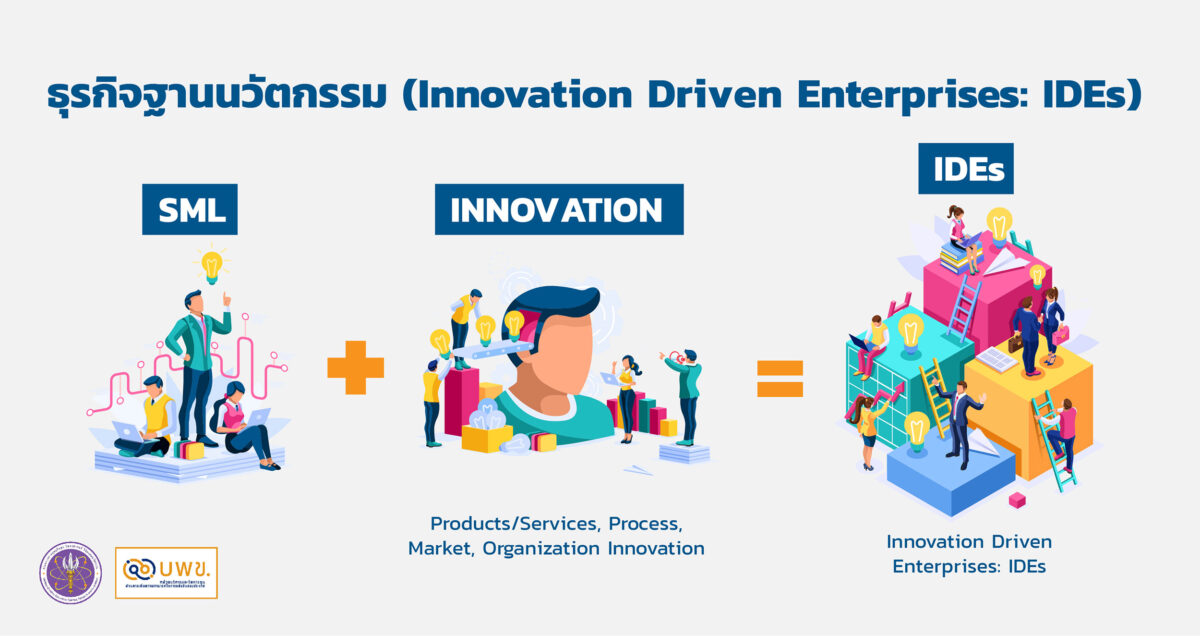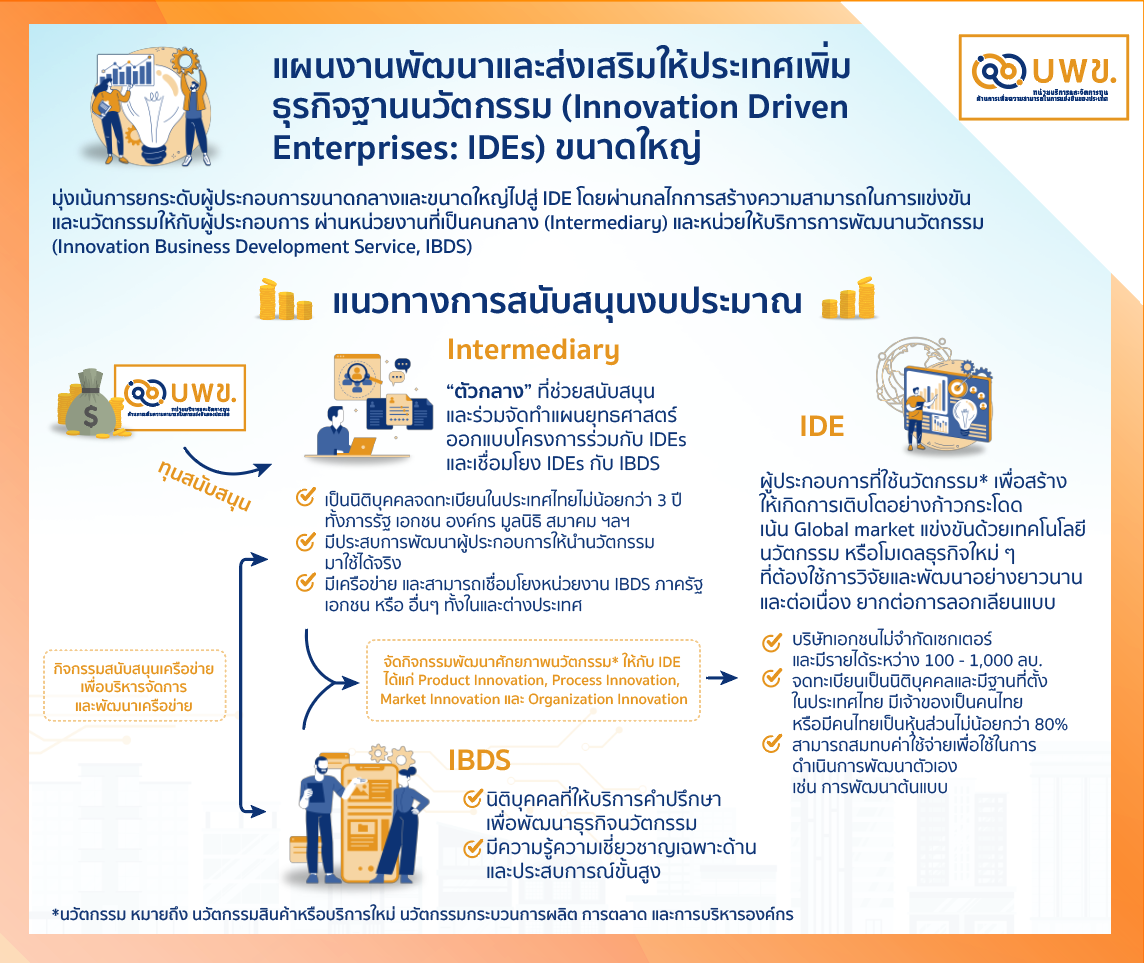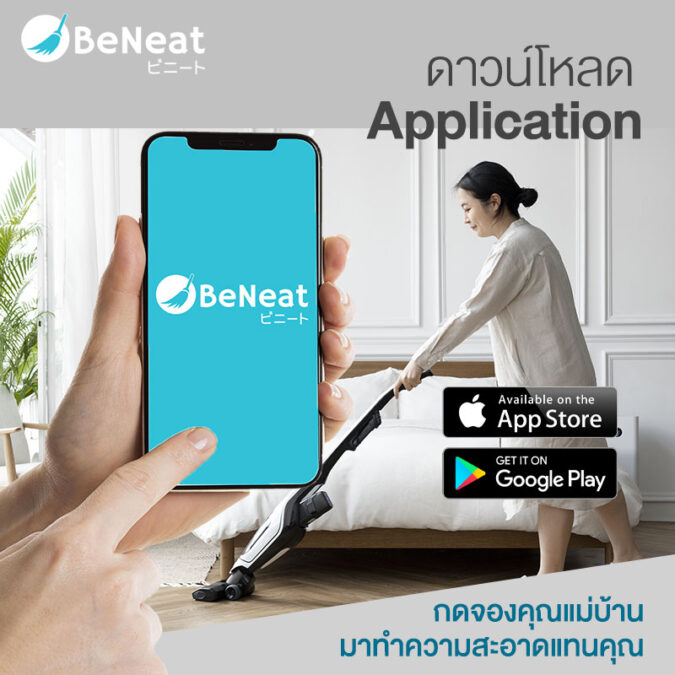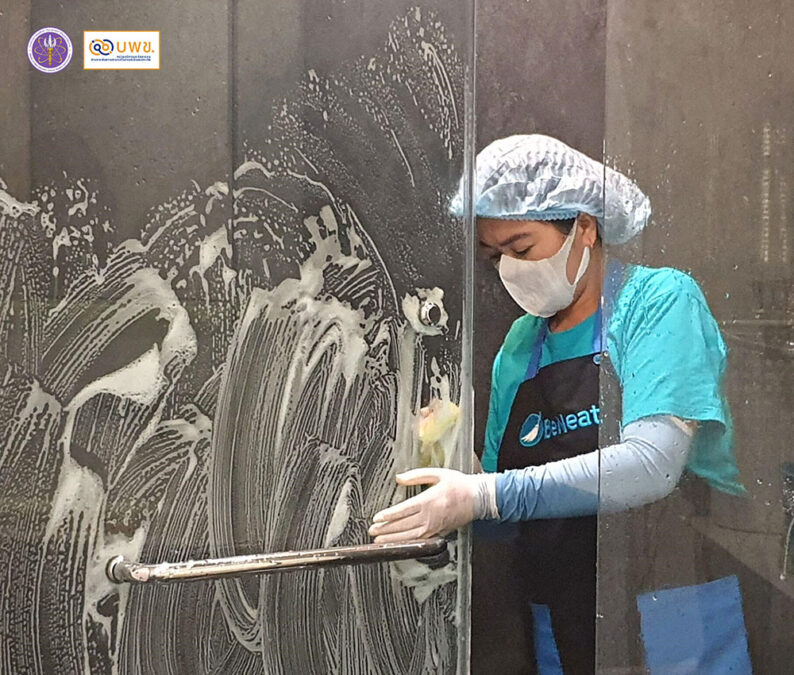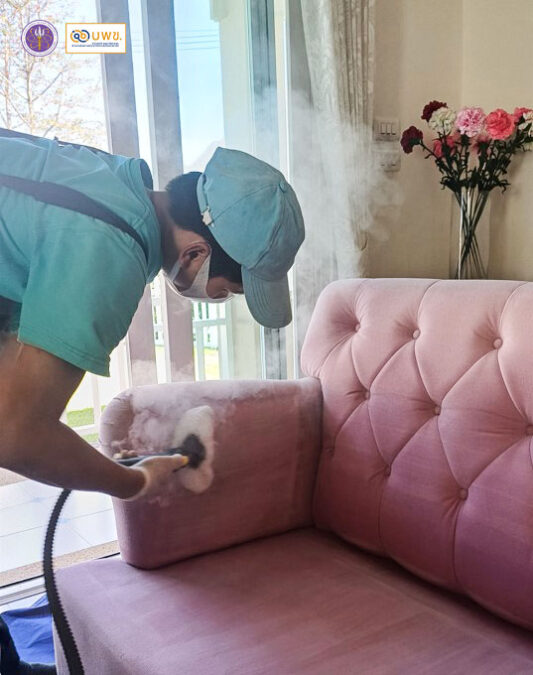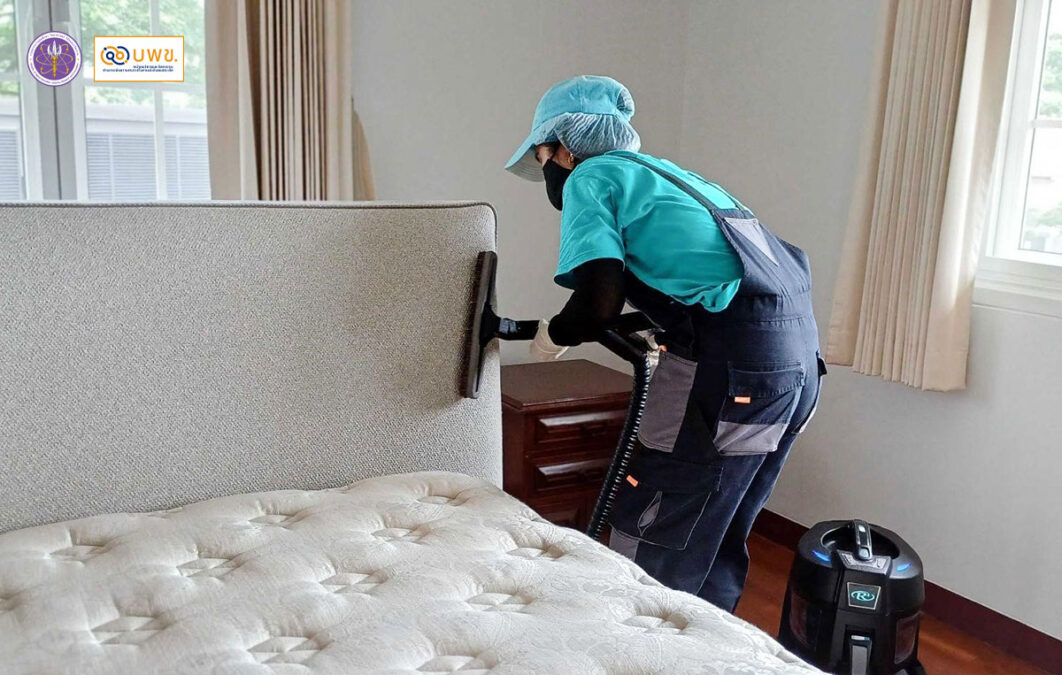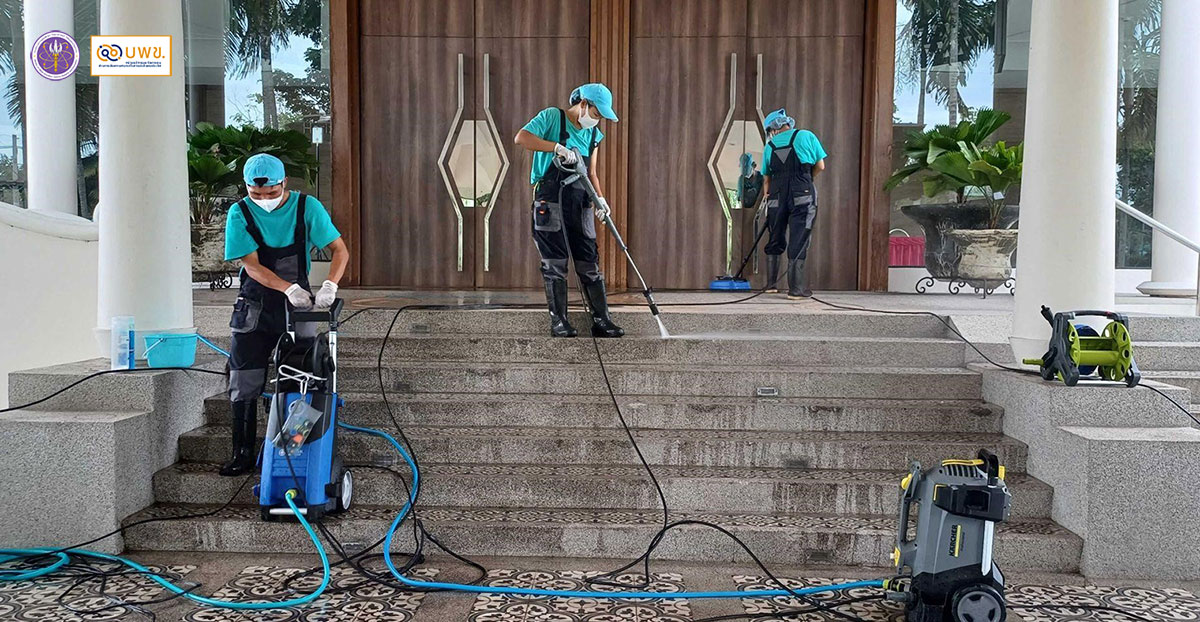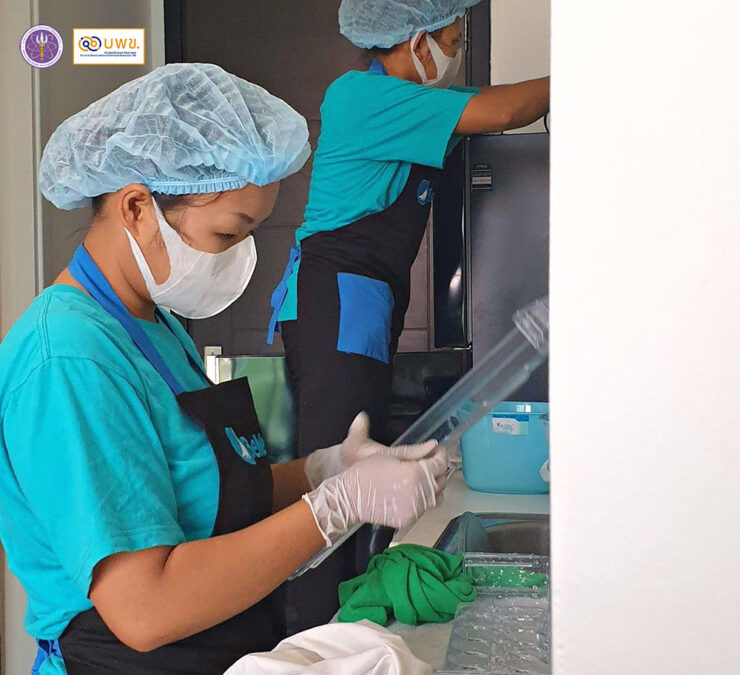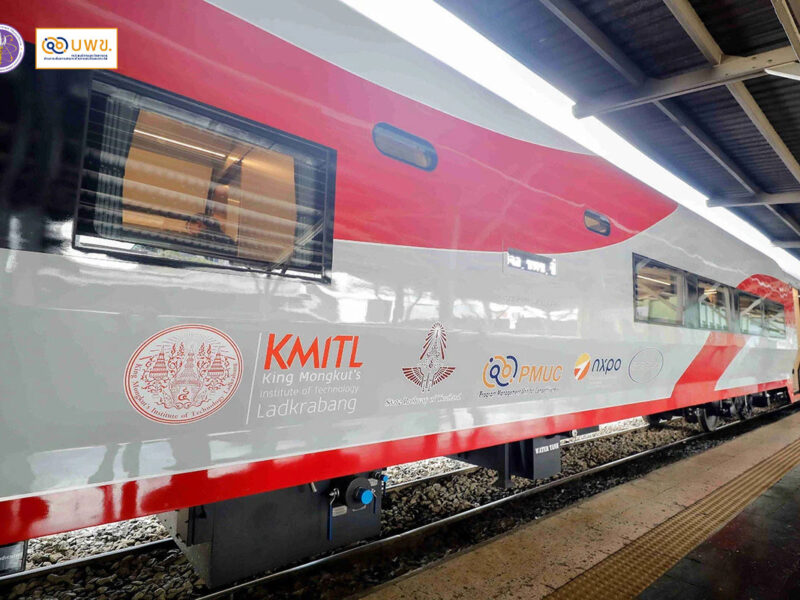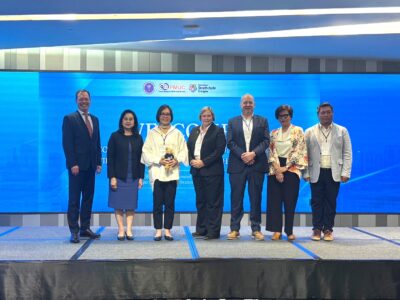
Going back 10 years, hiring housekeepers on a per-visit basis through online platforms was a very new concept. We were more accustomed to hiring full-time housekeepers on a monthly basis through agents or by word of mouth. However, the birth of “BeNeat,” a startup from Chiang Mai under the leadership of Mr. Anon Noi-am, has launched and stood firm to this day by meeting the needs of modern consumers, especially those in big cities with busy lifestyles who face heavy daily burdens, making regular house cleaning not easy to maintain.
Recently, BeNeat joined the Innovation Driven Enterprises (IDEs) program of the Program Management Unit for Competitiveness (PMUC), under the Ministry of Higher Education, Science, Research and Innovation (MHESI), ready to build on its success with innovation to prepare for another level of growth, not limited to just cleaning services.
Choosing to build a business that can REPEAT & SCALE UP.

Mr. Anon Noi-am, CEO of BeNeat, shared the path to the success of his business, which has been nurtured for nearly a decade: “Looking back to 2005, we saw opportunities in starting new businesses. We wanted to expand into a business that could be replicated without having to start from scratch every time. Since my background is in engineering and construction projects, I felt that every new project required starting anew. Thus, I sought a new business that could be repeated and scaled up. Generally, businesses like restaurants can be repeated but not scaled up. Meanwhile, various industries can be both repeated and scaled up but require high investment and carry high risk. Therefore, I studied to find a business that could achieve this with lower risk and investment. The answer was in ‘technology’ businesses. It coincided with the startup trend at that time, so I took the idea to consult with the Science Park at Chiang Mai University (CMU STeP) even before we had a platform. We received good advice and have since developed and grown continuously.”
Transferring experience from renting out accommodations on AIRBNB to the dream business.
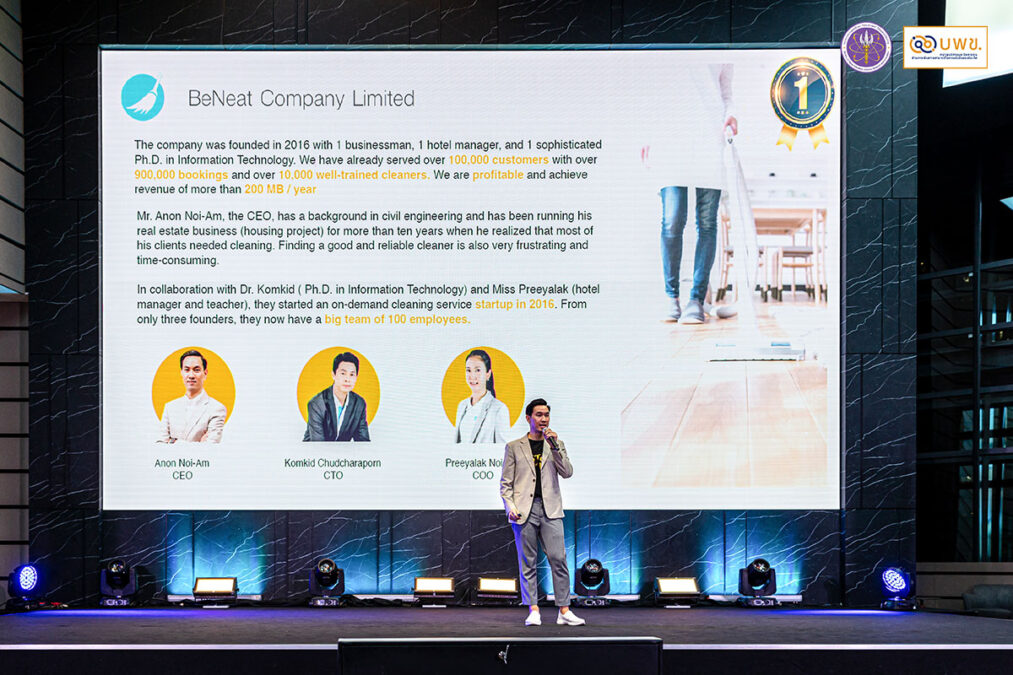
Why venture into an online platform for booking professional maids? Mr. Anon explained, “From the experience of renting out rooms through Airbnb, a famous startup from the United States, I saw an interesting concept. A platform could be designed to provide services. Being an Airbnb host and even a superhost with expertise in service, along with co-founder Mr. Komkid Chatcharaphon, CFO of BeNeat and one of the first writers about Airbnb in Thailand, we crystallized the idea to create this platform. We understood well that hosts needed professional cleaning services for their properties. With our early adopters being hosts who rented out rooms, we started with Airbnb first. It was a good starting point as it was more challenging than providing regular home cleaning services. The challenges included working against time, finding cleaners at the customer’s required time, and meeting high standards, as both hosts and guests expected hotel-level cleanliness.”
Mr. Anon pointed out the key strength of BeNeat from this distinct starting point: “We started with the difficult tasks first. When it came to providing residential cleaning services, it went smoothly because it was less challenging.
Not just convenient and clean, but also trustworthy.
BeNeat’s service model is an online platform for booking part-time maids, available through both website and application. The maids come equipped with cleaning tools and products, providing thorough cleaning from wiping, sweeping, vacuuming, to organizing items. They use cleaning products suitable for different surfaces and materials in the home to ensure safety and maximum efficiency. The primary service model is hourly service, starting at 520 baht (excluding VAT) for 2 hours in Bangkok and surrounding areas/Chonburi, and starting at 400 baht (excluding VAT) for 2 hours in Chiang Mai.
BeNeat offers maid services for cleaning on a one-time, hourly, daily, and monthly basis. If you need a regular maid, that can be arranged as well. The service is provided by professional maids who have undergone criminal background checks and come with damage insurance. If a maid is unable to provide the service, a replacement will be arranged. Customers can also reschedule and book additional cleaning times.
Additionally, BeNeat offers various professional maid service packages, including a three-person team for special areas such as door grooves, sliding doors, cobweb sweeping, and balcony cleaning with water extraction tools that prevent disturbance to other residents. The cleaning service also includes cleaning appliances of oil stains and other sanitary fixtures, but does not cover ingrained stains. There are also services for dust mite elimination, bathroom cleaning, and Big Cleaning, which includes disinfection spraying.
Moreover, this startup from Northern Thailand offers a distinctive service called BeNeat for Host, which has gained considerable recognition. This service prepares rental rooms for hosts on platforms like Airbnb, Booking.com, or AgodaHome. It provides a comprehensive service from renting bed linens, cleaning, laundry, preparing complementary sets, to room inspection.
To build a successful business, one must dare to propose feasible ideas.
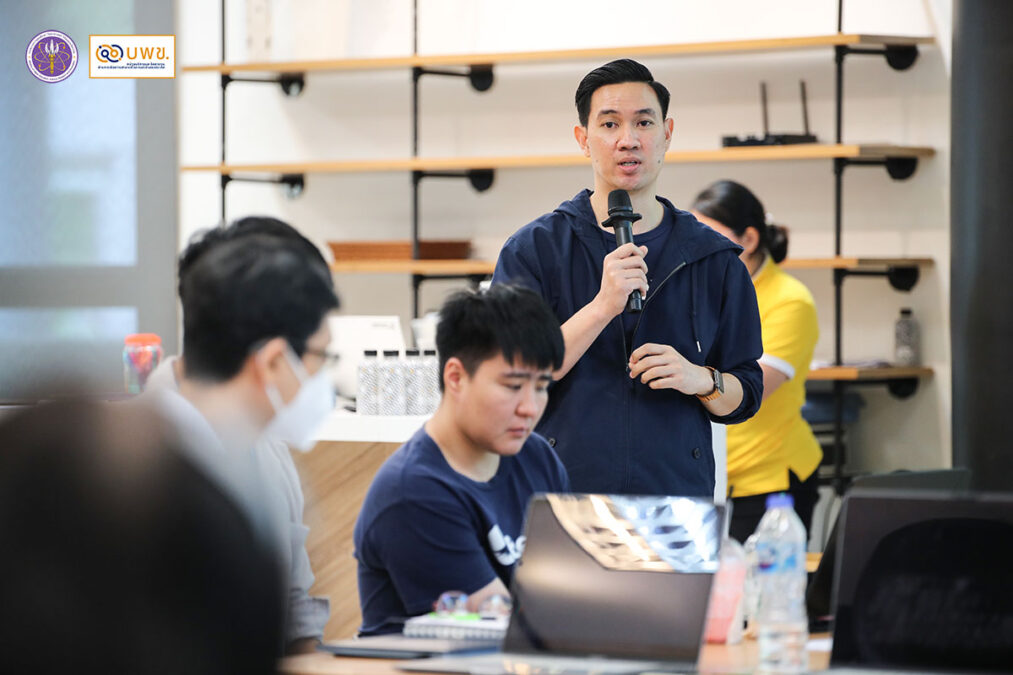
Mr. Anon shared his experience seeking support from the government agency CMU STeP: “Initially, we didn’t know about CMU STeP, but since we were building a technology platform business without programming knowledge, despite having some business knowledge, we searched for information on the internet. We found the name of the Science Park at CMU and thought it could help. Since I graduated from the Faculty of Engineering at CMU, I decided to consult with the faculty for advice and to see if the connections could help us reach our goal.”
“After contacting CMU STeP, we found them quite open and receptive. Presenting any project, especially a startup, comes with a high risk of failure. They didn’t focus on whether the business would succeed but on the feasibility of the business concept and our seriousness and determination. At that time, we didn’t receive a large sum of money but instead gained valuable knowledge. They later helped us gradually secure additional funding through good connections to help the company grow.”
“During the project launch phase, we received business model consultation. After finalizing the model, we set up booths at various innovation fairs to gather customer feedback and determine what more we could do. We also participated in the Startup Thailand 2016 contest, which boosted our brand visibility. However, we lacked funds, so CMU STeP allowed us to use their co-working space. Later, we aired a full five-minute segment on the TV program ‘Rueng Lao Chao Nee,’ which helped us gain customer recognition. But being based in Chiang Mai, we couldn’t reach customers in Bangkok. We couldn’t afford advertising, but with support from CMU STeP, we were able to penetrate the larger Bangkok and metropolitan market.
Unlocking business potential for exponential growth as an “innovation-based business” with the IDES project of the Program Management Unit for Competitiveness (PMUC).
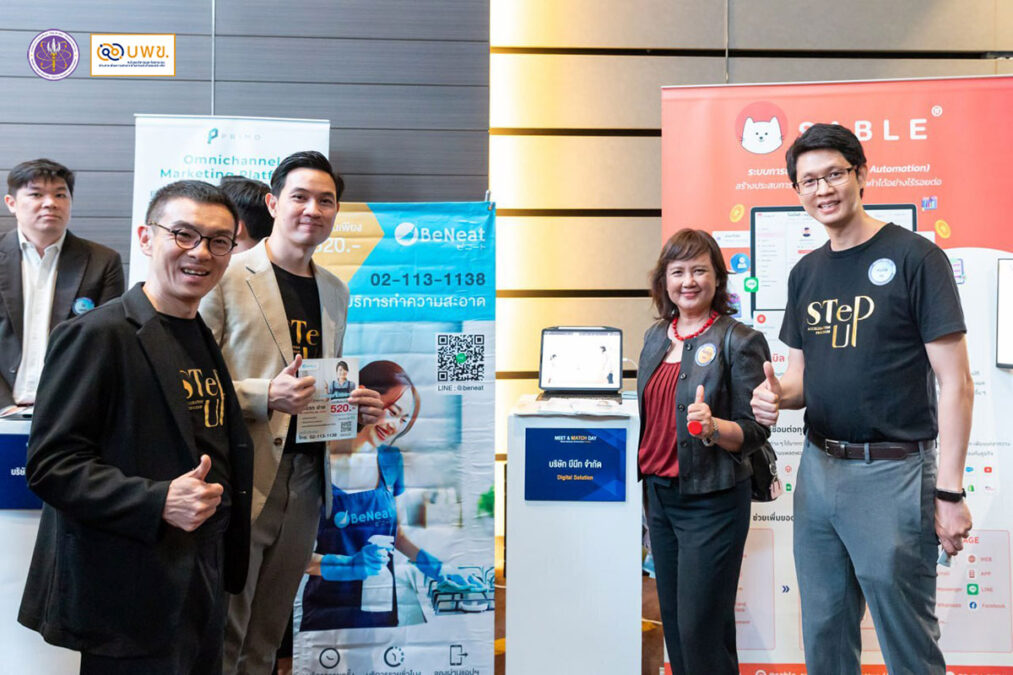
The nearly 10-year success of BeNeat is reflected through overwhelming user feedback and satisfactory revenue.
“Currently, BeNeat is an online platform for booking house cleaning services, growing continuously. We serve 10 provinces, with over 900,000 service calls, about 10,000 rigorously trained housekeepers, and around 100 full-time employees. Though headquartered in Chiang Mai, our primary services are in Bangkok and its vicinity, with last year’s revenue exceeding 200 million baht.”
However, Mr. Anon believes the online housekeeper booking market will soon reach the end of its S Curve. Therefore, he has planned a new future for BeNeat, expanding service scope beyond just housekeeping to drive sustainable business growth, targeting 600-1,000 million baht in revenue within 5-6 years. Achieving this requires further support to innovate.
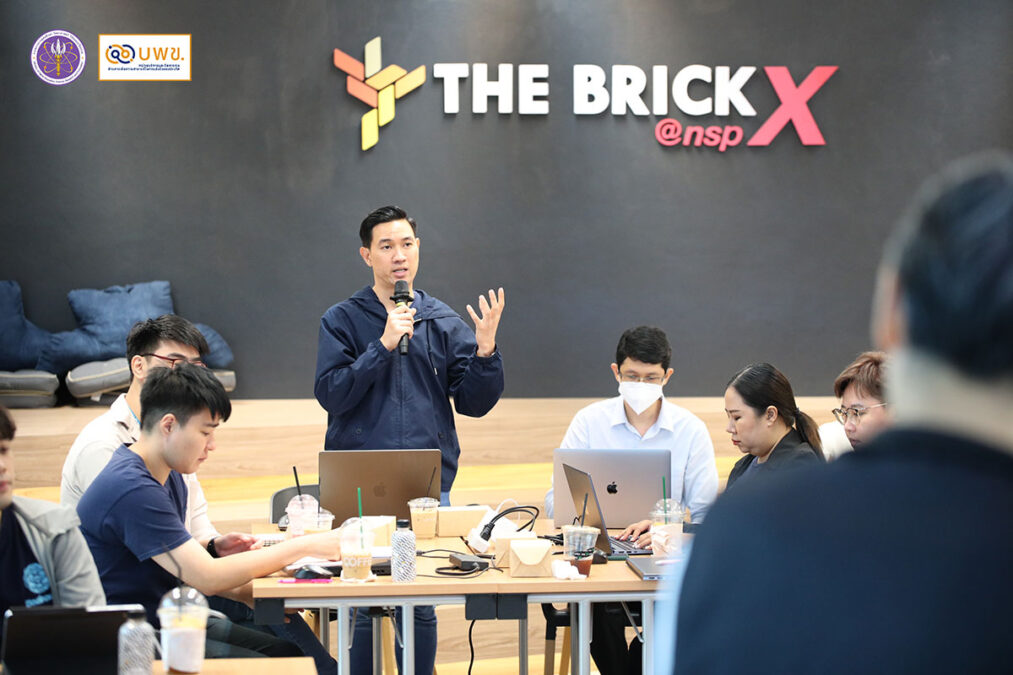
“BeNeat has grown steadily, but we need to take the next step by scaling up. Thus, we discussed with CMU STeP about the IDE project of PMUC. CMU STeP, as an innovation intermediary of PMUC, helped us to start thinking about new innovations, new customers, and new products. They provided advisors to guide us comprehensively. Currently, we perform well in the online professional housekeeping booking platform but face growth limitations as the service clusters around major cities. Thus, expanding size has a ceiling. In a few years, we’ll reach the end of the S Curve. So, developing new products is crucial. We aim to broaden our service reach nationwide. Hourly housekeeping may not fully meet the demand, so we might innovate in other areas such as cleaning solutions or other home cleaning products, necessitating strategic advisors. In the future, there will be more services and products like these, growing alongside the health-related industry.”
“We joined the IDE project late last year. So far, what we’ve received from IDE meets our expectations. We’ve gained extensive knowledge and currently revamped our management system with close advisor support. We’re simultaneously doing everything, from implementing ISO and operational manuals to conducting market research and linking data to improve services and launch new products, aligning with our goals.”
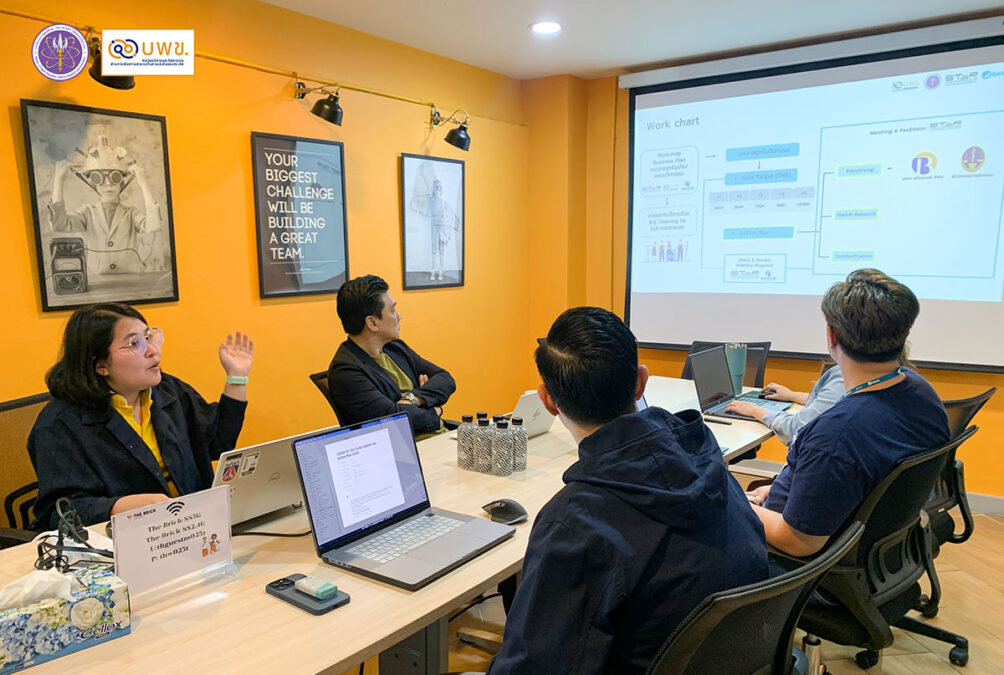
BeNeat’s participation in IDEs program took about a year. There are consultations from both CMU STeP and the IDEs plan of the PMUC. Every two months, a business plan and progress report must be presented to the IDEs program committee of the PMUC. Even though the IDEs mentorship will end this year, the 5-year business plan submitted will continue to be implemented to achieve the set goals.
The IDEs program aims to develop and promote innovation bases for Thailand’s businesses, supporting medium and large-sized entrepreneurs with partial funding. Consultation is hired to develop innovation for business expansion, enhancing competitiveness through collaboration and development with organizations or individuals in the Intermediary and Innovation network, such as Intermediaries or specialized organizations, for business innovation development. The ultimate goal is to support small-sized businesses and eventually elevate sustainable economic development for the country.
“Human resource development” is an indispensable aspect of service businesses. Mr. Anon stated that BeNeat is a service business, so the key factor driving its success and growth is human resource development, which poses a significant challenge.
“Suppose we were an SME providing general cleaning services with employees and supervisors; it would still be challenging. But being an online platform makes it even more difficult. To provide service to customers who are not our employees and to control factors like time, the attitude of the housekeepers, and service standards is even more challenging. That’s why we established training centers across provinces where we provide services. We have a relatively good training system and quality control IT system in place, but we are continuously improving because the heart of our online platform business is not just finding housekeepers for customers but finding quality housekeepers for customers. It might be challenging initially because customers don’t know where to find good housekeepers; an app to call is okay. But now, the app does more than just that because it controls quality according to customer needs. It’s another level above.”
“Because, in reality, consumer insight is that customers want quality housekeepers in terms of time, behavior, and cleaning skills. But our challenge is more in the management process. How to make it stable. The problem is clear that customers want it, but control is not 100 percent. So we have to find ways to control and continuously improve quality. Meanwhile, we have talked to the BOI’s IDEs program, which sent consultants to us, giving us the opportunity to develop quality control processes.”
Emphasis is placed on strengthening the market foundation domestically before expanding internationally. As a growing tech SME with good consultants and a clear business plan, BeNeat also sees opportunities abroad.
“The consultants suggested that we have the potential to expand internationally, which is also in our business plan. But in the next 5-6 years, we will focus on strengthening the market in Thailand first because venturing into foreign markets requires relatively high capital investment. The company’s growth plan is to enter the MAI market within the next 4-5 years and only after we have sufficient capability will we consider international markets.”
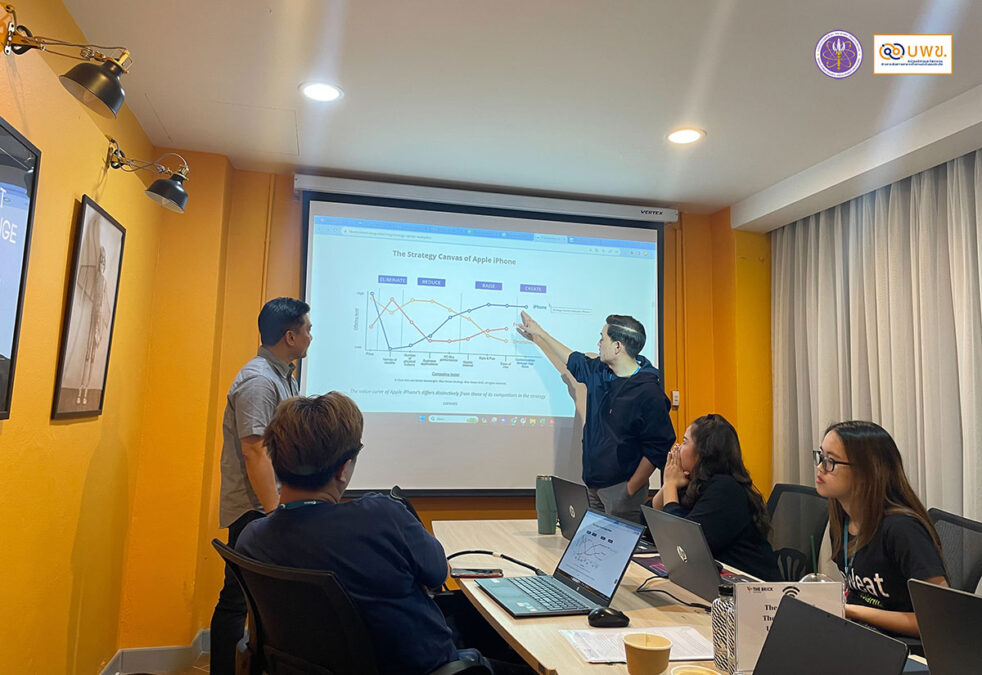
Extracting Valuable Business Lessons: “Adapt, Endure, Never Surrender, Learn from Mistakes, Fall and Get up Quickly”
Mr. Anon stated that there have been numerous lessons learned from past to present in conducting business, all of which are valuable and gladly shared.
“We’ve made many mistakes, whether in innovation, technology, or management. But if we look at the big picture, the answer is that we adapt fairly quickly. We run all the time because the starting point was built on running. We had no capital, no potential, and had to survive in a fiercely competitive market because competitors don’t just exist domestically, but also internationally. So, we had to adapt. The core values of our company are resilience and refusal to surrender. This is the startup spirit. If one day the company grows, how do we ensure that it maintains the same spirit as when we started? By ensuring that every employee understands and uses the lessons learned together. We always emphasize that we started from nothing. We survived because of resilience and adaptation. And whatever we think, it doesn’t necessarily mean success. But we must know what went wrong, learn from it, and do things better and faster.”
The competition landscape in online platform-based housemaid booking services and other household services is quite fierce. Currently, there are apps providing housemaid services by no less than 20 providers, including both large organizations and startups, as well as foreign entries. Each focuses on a different market, some on B2B markets, while others on consumers. Most have different selling points and positioning strategies.
Mr. Anon provided data from the Consumer Insights Association, compiled around 2012, estimating the market value of housemaid services at over 20 billion Baht with a Compound Annual Growth Rate (CAGR) of 3% per year. Similarly, Statista’s data suggests the market value to be over 30 billion Baht with a CAGR of 3%, indicating a high potential market. However, if we consider the entire supply chain, including not just services but also cleaning supplies and various equipment, the market could be significantly larger, possibly worth hundreds of billion Baht per year. This presents an opportunity for BeNeat to penetrate a larger market.
“Over the years, the main players have been independent housemaids, not receiving jobs through companies. But what BeNeat offers is akin to a substitute product, paying the same price but hiring through an online platform, which is better because we provide verification, training, and insurance. In the future, we believe that if consumers try or become aware of booking through an online platform, they will feel the value and security in the same price. In the online platform business sector, we have data from both direct and indirect sources that BeNeat holds over half the market share as a market leader. We aim to transform the cleaning service industry to be of higher quality in terms of service quality, knowledge, and skills in various cleaning types, as well as hygiene. While general independent housemaids may lack knowledge, training, and proper tools.”
Ready to support and elevate the quality of life for homemakers.
Even though BeNeat may be a tech SME, it resonates with the essence of a Social Enterprise. This transformation occurred because it has elevated the quality of life for homemakers: fewer working hours yet increased income, and more freedom in their work.
“A homemaker working just 2 hours can earn around 300-400 baht, almost equivalent to the minimum daily wage for an 8-hour workday. Hence, their quality of life is already better. However, to sustain this, we need both supply and demand to be assured that booking cleaning services online is valuable. We also need to upgrade our services. Therefore, this market will naturally grow, benefiting all parties involved. Customers receive good service, homemakers enjoy a better quality of life, and the company thrives. This is our goal.”
Mr. Anan shared an impressive story where BeNeat became a beacon of hope for many lives impacted by the spread of COVID-19, leading to layoffs from regular jobs.
“Covid-19 was both a crisis and an opportunity. Initially, customers were uncertain about safety, so when the lockdown happened, homemakers couldn’t provide services. There were no vaccines at that time. The use of our online platform decreased due to health and safety concerns. However, we still had some customers, such as closed houses with no occupants, no renters. The owners hired cleaners as there was no close contact. Customers were happy to use our services, and homemakers were relieved to work without worry. This allowed us to navigate through the crisis. The opportunity was when things started improving. We are proud that many homemakers, previously laid off from regular jobs, could find income through our platform. Some were former factory workers or hotel receptionists left without income. What would they do? Our online platform provided a lifeline. Some used to earn high salaries, but if they had no income on any given day, they couldn’t survive. With BeNeat, they can earn 30,000-40,000 baht per month and are satisfied. Moreover, they have time to take care of their families.”
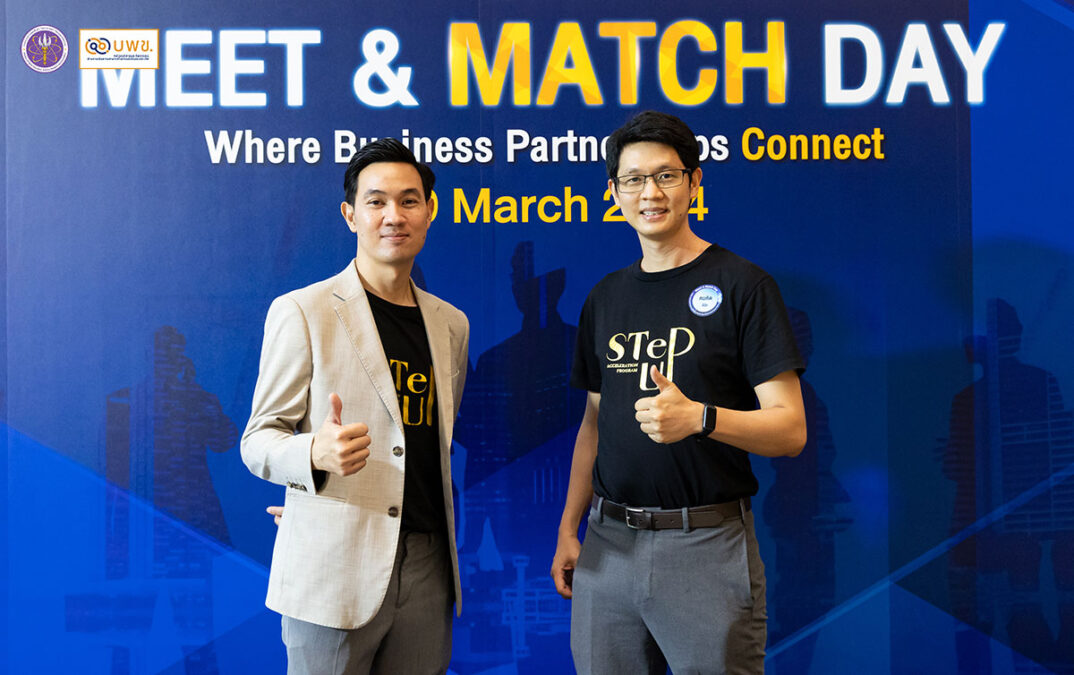
Thanks to various state agencies for promoting and developing the startup ecosystem and SMEs in Thailand, Khun Anan emphasized the importance of entities like CMU STeP and BOI for startups like BeNeat.
“We’re not just talking about tech startups and SMEs but also about ordinary people starting businesses, office workers, or fresh graduates who need mentoring. These agencies don’t expect immediate returns; they provide comprehensive guidance and potential for business expansion. They offer connections and systematic support, such as clearing ideas beforehand and providing some funding. It may not be much, but it enables us to progress. The most important thing is knowledge and the next steps when we grow. They can bring in other supportive agencies and open doors for us. From our experience, these state agencies play a crucial role in pushing startups and SMEs forward, unlike private sector consultations, which often come with expectations of some form of exchange, not free assistance. So, it’s relatively challenging to tune in with them compared to state agencies.”
Therefore, Mr. Anon invites capable entrepreneurs to take advantage of IDEs’ support conditions to develop innovative businesses.
“PMUC’s IDEs are indeed an excellent initiative. There’s no reason for SMEs with opportunities to not participate because it’s a win-win situation. You get connections, knowledge, and the chance to develop innovative technology that significantly enhances competitiveness.”
